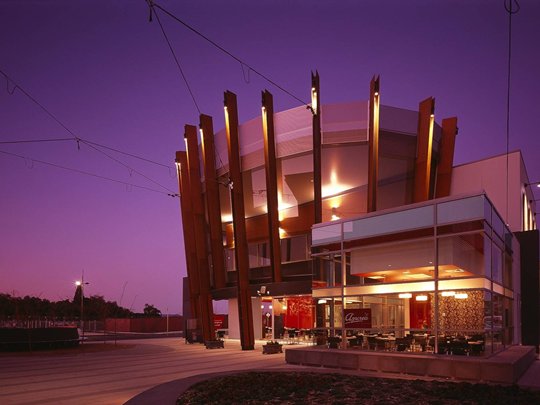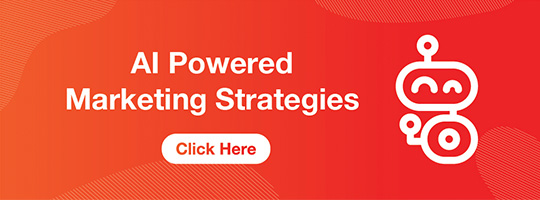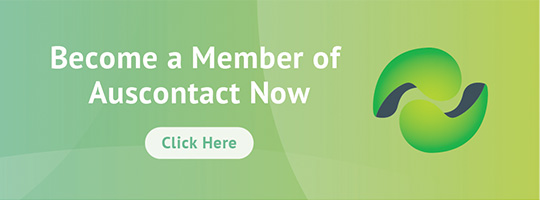Company culture acts as the glue that holds an organisation together, but getting the mix right can be tricky. Just like you can’t buy happiness, you can’t buy a great company culture.
As Starbucks CEO Howard Schultz famously said, “The value of your company is driven by your company’s values.”
While the traits associated with successful company culture differ from business to business, some traits are universal.
Others set themselves apart, like Australian architectural firm i2C. The company was ranked among Australia’s top 50 employers by BRW this year.
Managing directors Brian Jende and Anthony Merlin have worked hard to promote a strong company organisational culture and pride themselves on providing a nurturing team environment.
“Rising up the BRW list was a goal we set ourselves three years ago – in the first year, we were number 70 out of about 180 companies,” Merlin said. “Last year, we came 60th.This year we knew we had improved and hoped we had reached the top 50, but didn’t quite expect to make it into the thirties.
“We were pretty excited, although the award is one thing – it’s really the journey on the way and building the team which really means the most. Knowing we’re that high on the list because the team has voted themselves there is pretty satisfying.”
The company also holds an annual team-building weekend, uniting team members from all three offices in one location. The event is now running in its fifth year and previously included a Sydney Harbour Bridge climb, cooking classes and white water rafting.
Apart from the fun element, team members also get a chance to pick the brains of Merlin and Jende and have personal input in outlining i2C’s goals for the following year.
“The team-building workshop is about discussing all the things that have happened at the company since we last met, what we’re doing now, and also our future goals for the next year,” Merlin said.
“After that, we have a few hours of dinner and drinks, then a recap the next day. This is when we have a Q&A with Brian and I, where the team can ask any question they like. We feel that this gives them ownership of the company – it’s easy for Brian and I to stand up the front, but it won’t mean anything to the team if they can’t add to those goals.
“Once the Q&A session concludes, we have a big team-building exercise run by an external company, which is based on having fun.”
Despite the happy hours and fun times on offer, Jende believes that honesty and commitment are the key elements to fostering a happy and healthy company culture.
i2C’s culture and team values are communicated to all potential candidates from the beginning of the recruitment process, while all current members are encouraged to have two-way communication with their managers.
“Open communication between everyone is important to us,” he said. “All of the team at i2C work hard and play with the same level of enthusiasm, so we have created a real team environment where trust is implicit.
“Going back 13 years when Anthony and I set up the business, we began with a philosophy of only working with people we could have a beer or a coffee with. This meant we could work with them to achieve outstanding results while also having a great long-term relationship.”
When i2C was founded in 1999, it was set up to be a company with a main goal of being well-respected and innovative in architecture through providing an outstanding service.
Merlin and Jende were good friends before teaming up as business partners, and say their relationship helped cement and build a strong culture.
“In the first couple of days, it was just Brian and I, but that grew to about four or five of us within a few weeks,” Merlin said.
“Building the culture wasn’t a conscious thing back then and just evolved out of Brian and I being good mates. As the years went on, the culture instilled itself in people.
“We’ve worked really hard on that over the past few years by coming up with the company vision and getting the leadership team to come up with seven points of culture, which are like guidelines at work.
“The most important is fun. We also put it to the team via a competition to display the points of culture and ended up getting some graffiti artists to decorate Munny dolls with designs for each single point. These are now displayed around the office.”
According to American culture development expert and social entrepreneur Chelsea Brownridge, creating a team charter is key to maintaining workplace harmony. This is conducted by having a conversation with the team, outlining goals, objectives, team structure, codes of conduct, conflict management and communication. It can also include pet peeves, technology phobias and areas for growth.
Today, i2C has fine-tuned a similar philosophy, growing its team to more than 40 members in Sydney, Melbourne and Perth. Jende said the foundation of their company values remains the same: open communication encourages teamwork, which creates honesty and commitment.
“This isn’t a workplace where we just sit around a boardroom table – we each try to understand what our teammates are doing in their own environments,” he said.
“People are keen to talk about things outside of work and we work so much that it’s important to encourage that discussion: where they go on holiday, what their kids are doing, and so on. This gives us a better understanding of our team members as well.”
While some companies’ mission statements are often just words on paper, i2C’s motto is simple: Inspiring ideas to enhance human experience. This vision was created by the co-directors, based around the mantra of what they wanted the company to stand for and achieve.
In order to enhance the vision, the firm also developed a substantial mentoring program in all three of its offices.
“(The program) is designed to ensure our team has the skills and commitment to climb the ladder so that we are not trying to fill holes,” Jende said.
“We like to promote from within where possible and from the bottom up, which helps drive the team to reach for further challenges. We also like to encourage team members to strive to be looking to do the job of the team member who they report to.
“If they do that, they are exceeding expectation and pushing further up the food chain, which creates a stronger company on a whole range of levels.”
At i2C, the fostering environment encourages excellence and demands the best, which is critical in the highly-competitive architectural industry.
According to Jende, their culture has resulted in little turnover within the organisation, with each team member keenly aware that they are working towards something bigger – the commitment shown by the firm’s leaders lifts the team working under them.
“I think there are a lot of people in our company that are happy to put their hand up and take responsibility,” he said. “What comes with that is doing the hard work and having the strength of being a leader.”
Despite the positive message enforced through i2C’s nurturing environment, the firm’s founders still faced numerous challenges while developing its present-day message.
Merlin said the most common obstacle was finding the right person for the company and tweaking i2C’s recruitment process to ensure they found the best team player possible.
“There are always a couple of people who don’t want to play the game or by the rules – they push back, aren’t interested and think it’s all a lot of rubbish,” Merlin said. “They really deselect themselves from the working process just through the way they act and behave.
“Now that we have a straightforward vision, we’re very clear in the interviews when recruiting for new positions – the process is very different to what you’re used to. In a way, what we want to do is become a workplace of choice. It’s not so much us choosing the candidates, but them choosing us. We believe we can teach team members everything relating to the industry but having the right outlook is something that must already be instilled.”
As architects work notoriously long hours, i2C is set on improving the industry’s culture by committing to improve itself and the lives of its team members.
The company deals in the retail and commercial sectors of architecture, offering diversification and a point of difference to keep the team involved, honest, committed and searching for new innovative design outcomes.
With an established string of retail giant clients including, Colonial First State, Centro Properties, Charter Hall and other leading Australian developers, i2C is also working towards its aim of being Australia’s architectural and design firm of choice.
“(Clients) can see we have a good understanding of our craft from an architectural, commercial and development perspective,” Jende said.
“There is a danger that things can go awry if you only focus on one of those elements – architecture should be a holistic pursuit.
“So what clients receive from us is knowledge, commitment and minimal ego. We’d rather get on and deliver an inspiring, innovative project and product for the client that exceeds their expectations – this is critically important in a service industry.”
i2C profiles
Kathy Grigoriu
Project architect and design architect
What has been your favourite i2C project to work on to date?
My favourite project at i2C to date is University Hill Stages 1 and 1a which comprises of a factory outlet with associated retail, supermarket and a high street approach culminating at a Town Centre.
It’s interesting to be able to see the project 5 years after its completion and have the design intent and architectural philosophy realised. Our approach for the retail precinct was to capture the spirit of the place and create a sense of identity for the community in the area. It has become something more than that as the residential zones are occupied and commercial precincts have evolved. It has become a successful retail precinct and we have been invited back to review the expansion to the factory outlet. Uni Hill has become a vibrant high street that has been universally embraced by the local and greater communities in the area. It’s wonderful to see the concept become a bustling retail strip and precinct.
We have created a precinct where the community can meet and greet in a contemporary retail environment that has dynamic open public spaces. Pedestrian and vehicle access, linkages and movement have been carefully considered to enhance convenience and amenity.
Shoppers and residents are greeted by gateway elements to the high street creating a sense of entry upon approach. The focal point of the development centres on the location of the Town Square which activates the high street and signifies the interface with the surrounding precincts. The elliptical signature building adjacent to the town square creates a beacon for the square and is my proudest achievement yet.
It’s a unique design concept that captures the essence of the surrounding context and unifies the site which suggested the elliptical form. The design approach began as a study of the surrounding native vegetation and the colours of the eucalypt trees in the area. We took the form and imagined we were peeling away the bark off the trees which gave the formation of a segmented structure.
What are you currently working on? And what’s next?
Currently I’m working on Lansell Plaza in Bendigo where we are expanding and refurbishing an existing centre. It will be great to be able to provide a revived retail precinct for the community in the area. We approach our designs with the interest of the users in mind and have great consideration for the sense of place in all our design philosophies.
How do you translate i2C’s values into a client’s project?
My personal values are strongly in line with the values and culture of i2C. I believe that in order to create great spaces and buildings each project needs to be approached with passion and integrity. With those fundamental principles forming the basis of the design intent each project is unique and innovative. i2C have been instrumental in harnessing strong values in the office that permeate from the founding directors and inspire fellow team members.
How does the i2C company culture help with doing your job?
The i2C culture provides a vibrant and exciting work environment inviting all team members to provide input and explore new and exciting concepts. Ideas are welcomed by everyone and everyone has a voice. Fun and flexibility are as important as meeting deadlines in the workplace. Social activities make up regular sessions during office time and out of hours. We are an office that enjoy each other’s company and have a great deal of respect for fellow team members. A healthy work life balance is encouraged and supported by providing a well-being scheme and flexible working hours. The friendly and supportive framework of the i2C culture has provided me with the opportunity to return to work after having my children and furthering my career and pursue what I love to do.
What have you most enjoyed about working at i2C?
I can’t say what I have enjoyed most about working at i2C. It has been an office that has provided me with great work opportunities in an environment that has been fun, relaxed and passionate about the work we do. Juggling the life of a young family and career isn’t easy, but we have been able to find a balance that can accommodate both and make both home and work a happy place to be.
Shaylan Maharaj
Project architect
What has been your favourite i2C project to work on to date?
Roxburgh Park Shopping Centre, a $ 40+ million retail development comprising a new large-format Coles tenancy, an Aldi tenancy, 25 specialty retailers and refurbishment to the existing shopping centre.
What was the biggest challenge you’ve faced while working on a project? How did you tackle it?
Recently, the greatest challenge was delivering a quality built outcome that will not just meet but exceed the client’s expectations, in the midst of a challenging economic environment but without compromising the architectural vision or the quality of the end product.
A truly collaborative all-in approach involving all members of the project team is the only solution to achieve this. On the Roxburgh Park project, quite often an innovative, cost-effective and achievable solution to a difficult problem was achieved when the builders, engineers, tradesmen and ourselves worked collaboratively as a team. By drawing on all our vast range of experience and expertise to resolve issues as they arose, the result was often a well-resolved solution that both the client and the project team are all happy to proceed with.
How do you balance work with your personal life?
Communication and organised planning is the key. If a project deadline clashes with an overseas family trip for example, it’s important to advise the team leader as soon as possible, so the team workflows and time allocation can be adjusted accordingly. In this way, the company can ensure that the project deadline is met without the remaining team members having to put in a huge amount of overtime that can cause resentment, and also without compromising the quality of the work we produce that can result in issues during later phases. It works both ways because as project architect, you can enjoy your time away with your family with the assurance that the project is well and truly under control.
What was the most fulfilling project you worked on at i2C?
Getting the i2C environmentally sustainable design team up and running was a good feeling. Environmentally sustainable design is an area that I am really passionate about and the interest from other team members has been great.
Was also a good feeling to see the team members having fun and playing with the i2C points of culture dolls. There was a fair bit of work in developing the concept, researching the best way forward to produce the dolls, working with the artists on the concepts and the final outcome, so it was a good feeling to see it all come together.
It will no doubt be a proud moment when the Roxburgh Park Shopping Centre development is completed. We’ve been working on various stages of the project over the last few years so it will be great to see it finished. I’m especially happy with the ESD elements that were incorporated into the design and the collaborative approach that we’ve experienced with the project team that has resulted in a great project that I’m sure we’ll be really proud of.
How does the i2C company culture help with doing your job?
Teamwork is very important. To know that I have the support of the entire team is great, especially when deadlines are looming.
Communication is very important also. It’s great to know what’s happening around the office and on other projects, opportunities that have arisen, pitfalls to avoid, and so on. We can draw on this knowledge and experience on other projects.
How do you translate i2C’s values into a client’s project?
Basically, by walking the talk:
- Integrity and accountability: Delivering on what we promise to clients, to consultants and to the project team.
- Balance: Being realistic about deadlines to clients and mindful not to compromise our family time or health.
- Passion and fun: Approaching each project with the attitude that you want to do your best work here. Getting the rest of the project and consultant team on board with that.
What have you most enjoyed about working at the firm?
The support I get for doing the stuff I am passionate about, like managing projects, environmentally sustainable design and doing my post-graduate study in business next year.
Rick Gartner
Associate director
What has been your favourite i2C project to work on to date?
Pakenham Market Place for Fabcot. It included a full line supermarket a Big W and approximately 30 specialty shops with on grade and basement carparking. The design philosophy of the proposed Pakenham Market Place is focused around capturing the underlying spirit and culture of the greater Pakenham area. This is paramount in creating a retail precinct that will be universally embraced by the local communities within the area.
What was the biggest challenge you’ve faced while working on a project? How did you tackle it?
As far as my biggest challenge at i2C, it would be the setting up of the Perth office which is still an ongoing but enjoyable challenge.
How do you balance work with your personal life?
The key to work life balance is being organised. Being passionate about my work makes it easy to get involved in all aspects of my day at i2C, however family is the most important part of my life and the flexibility afforded by i2C allow me to make sure that I am able to maximise my time with them, including allowing time off to coach my son’s basketball team.
What has been your proudest achievement at i2C?
Getting into the top 50 best places to work in the BRW awards. Being part of the team that has worked hard to build a workplace where people want to work rather than feel they have to work is very rewarding.
What are you currently working on? And what’s next?
Currently I am working closely with the team in Melbourne, Sydney and Perth and mentoring them on all aspects of the end to end processes of a project. I am also involved in the operations side of the business, working closely with (managing director) Anthony Merlin on the customer experience and helping to develop systems to ensure the quality of our work is second to none. The continued growth of the Perth office is also a priority.
How does the i2C company culture help with doing your job?
I think the company culture has formed a very tight knit team where everyone pulls their weight and is more than happy to help each other out as needed.
How do you translate i2C’s values into a client’s project?
i2C’s values translate into everything that we do, including projects. We always strive for excellence we are passionate about our work we have fun doing the work and most of all we operate as a team.
What have you most enjoyed about working at the firm?
The team is what makes working at i2C the most enjoyable place that I have worked at, along with a great mix of client and projects.
If you are interested in i2C’s views and insights, follow them on Twitter @i2C_DesignMgmt, LinkedIn or visit their website at www.i2C.com.au










Comments are closed.